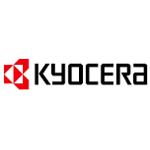Manufacturing ERP system
Manufacturing ERP allows you to integrate all aspects of the business-processes, giving you visibility and control. Streamline your operations and get the most out of multiple workshops and production lines.
Adjustable module solutions for manufacture automation
Optimize resource management and quality control at all stages of production
The software offers transparency and control at every stage. Manufacturing ERP provides tools for shop floor management, complex supply chains and engineering development, in addition to standard modules for financial and accounting management, quality control and human resources.
Production and workshop management
Coordinates and controls the work of all shops and production lines, allowing you to allocate tasks efficiently and optimize equipment utilization.
Supply chain
This module helps to optimize procurement, logistics and supplier relationships to ensure a smooth supply of raw materials and components.
Engineering and modeling
Supports new product development and testing by integrating design data and models into manufacturing processes to improve product accuracy and quality.
Computer Aided Process Planning (CAPP)
Automated process modeling and analysis. Route and cycle time optimization through simulation, and integration with MES systems to synchronize plans with actual production.
Supervisory Control and Data Acquisition (SCADA)
Provides real-time monitoring and control of manufacturing processes, collecting data from equipment and enabling rapid response to errors, disruptions, and incidents.
Product Lifecycle Management (PLM)
Project and process revision management, analyzing the impact of changes on manufacturing plans and resources to ensure data relevance and risk reduction.
One ERP completed projects
Learn how international 1C ERP platform reflected our clients business
No Posts Found!
First.Bit: Leader in ERP development for your business






- First Bit is an international IT company with 27 years of relevant experience.
- Our offices are open in 10 countries, including Russia, Kazakhstan, Uzbekistan, Belarus, UAE, Spain, Canada, Colombia, Brazil.
- The management system is certified for compliance with the international quality standard ISO 9001:2000.
- We are engaged in automation and digitalization on turnkey bases and have the resources to carry out a project of any size.
- Our solutions guarantee the sustainable development of the client’s business and make it stronger.
- Our team consists of more than 8,000 employees with a wide range of skills in process automation, implementation of BI and CRM systems, data collection and visualization, and simulation modeling.
Our customer’s feedback



7 Steps from Designing to Supporting ERP Solutions for Manufacturing
1.Requirements Assessment. Examining the specifics of engineering and heavy manufacturing to identify key functional requirements such as managing complex production chains, quality control, scheduling and inventory management of materials and components.
2. System design. Development of an ERP software architecture tailored to complex manufacturing processes, including the creation of detailed specifications for production cycle management, engineering and equipment maintenance modules.
3. Software Selection and Customisation. Selection of an ERP solution capable of handling large volumes of data and integration with existing process control systems such as SCADA, MES and CAD/CAM.
4. Development and integration. Designing specialized modules, such as computer-aided process planning (CAPP), scheduling, inventory and maintenance management, tailored to the specific requirements of the plant.
5. Testing and optimisation. Conducting testing in real manufacturing scenarios, including validation of equipment integration, workflow simulation and troubleshooting to ensure system uptime in high production environments.
6. Implementation and training. Progressive implementation of the platform at production sites, training of operators and engineering staff. Preparation of training materials and instructions, and transition assistance to minimize disruption to current processes.
7. Support and Upgrades. Provide ongoing technical support for rapid problem resolution. Regularly updating the software to reflect new requirements and technologies, and adapting the system to changing conditions and business needs.
Industrial giants benefiting from manufacturing ERP software implementation
Manufacturers of construction and agricultural machinery
Production of large-sized vehicles and equipment - tractors, combine harvesters, excavators, bulldozers, graders, cranes and loaders.
Power and industrial equipment manufacturing
Manufacture of turbines, generators, boilers for power plants. Production of machine tools, presses and automated production lines for various industries.
Metallurgical
plants
Produce steel, iron, aluminum and other metals used in various industries. Typically produce steel sheets, beams, wire and rolled metal products.
Shipyards
Engaged in the design and construction of various types of marine vessels such as tankers, container ships, passenger liners and military ships.
Railway engineering
Manufacture of locomotives, passenger carriages, freight wagons and railway equipment, including rails and switches.
Mining equipment
Manufactures machinery and equipment for mining and mineral processing, including drilling rigs, mining trucks, crushers and conveyors.
Development timeframe and fees
The timeline for introducing an ERP system depends on several key factors, such as:
- the size of the company;
- the complexity of the business processes;
- the amount of customisation required.
Implementation can take anywhere from a few weeks for small companies with typical processes to several months for large companies with high levels of individual customisation.
Depending on your needs First.Bit can offer you a package-solution or a tailored turnkey project including in-depth customization, development of additional modules and effective integration with existing applications and programs. You can also choose between local, cloud or hybrid versions.
The cost of ERP software deployment is based on the following parameters:
- Number of employees and licenses.
- Company size: large organizations with many branches and subdivisions require more resources and time.
- Customisation requirements: simple configurations for typical business processes are less expensive, while complex solutions requiring customisation increase costs.
Get an individual ERP system cost calculation
Key advantages of partnering with First.Bit
Bespoke ERP solutions with built-in BI
Each company is unique. That's why we take the time to analyze your needs and develop tailor-made solutions.
FTA Accredited Software
Our software meets the highest security and reliability requirements and complies with all international standards.
Best available practices and professional team
Our company has decades of unmatched experience. And a team of experts is ready to deliver the best products for your business.
Get free expert advice
Fill the form to reach us. Our team will contact you ASAP and answer all your questions.
Unlock the full potential of 1C ERP for your company.
Zeytinlik Mah. Halkçı Sk. İren Han Gür Çarşı Blok No: 28 İç Kapı No: 58 Bakırköy / İstanbul
Phone: +905010069565
